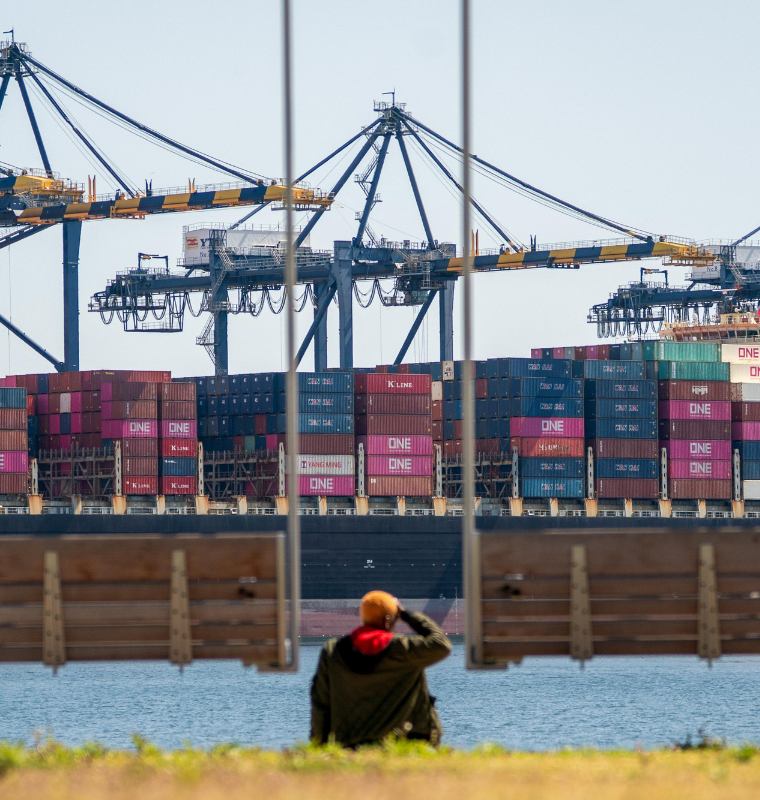Is German Infrastructure the Next Big Investment Opportunity?
Is German Infrastructure the Next Big Investment Opportunity?
By
Rachel Steinberg
Last updated:
May 30, 2025
First Published:
August 3, 2025

Getty Images
The Growing Interest in Germany’s Infrastructure Investment
Germany, the largest economy in Europe, has found itself grappling with decades of underinvestment in its infrastructure. From aging bridges to outdated train systems and limited digitalization, the nation’s infrastructure has become a significant challenge. However, the newly formed government has recognized the urgency of these issues and has set infrastructure development as a key priority.
A 500 Billion Euro Investment Fund
In a bold move to address these challenges, Germany launched a groundbreaking €500 billion ($563 billion) infrastructure and climate special investment fund earlier this year. This fund, which was enshrined in the country’s constitution, aims to revitalize the nation's infrastructure and tackle climate change. However, the government is also looking beyond public funds and encouraging private sector involvement to make this vision a reality.
Economy Minister Katherina Reiche has made it clear that private capital will play a crucial role in this ambitious plan. In a recent interview with CNBC, she emphasized the need for both speed and substantial investments:
“Of all the investments we will do, 10% of them could be done with public money, we need 90% of private sector investments.”
This call to action has caught the attention of investors worldwide, as the private sector is expected to help fill the gap left by public funds in revitalizing Germany’s crumbling infrastructure.
The Need for Private Investment
Germany's infrastructure woes have been exacerbated by years of fiscal restrictions that prevented substantial public investments. The results are evident—crumbling bridges, deteriorating railway tracks, and a lack of modern digital infrastructure. According to experts, the country needs massive private sector involvement to turn things around.
Stefan Wintels, CEO of the German investment and development bank KfW, noted the growing interest in Germany as a destination for infrastructure investment. Speaking about his travels to financial hubs such as New York, London, and Zurich, Wintels remarked:
“There is a lot of interest... People want to invest in Germany.”
This enthusiasm is echoed by Robin Winkler, Chief German Economist at Deutsche Bank, who points to a recent uptick in investor interest following Germany’s political shifts:
“There has been a notable pick-up in investor interest in German infrastructure,” Winkler said. He believes that the mobilization of private capital will be vital for maximizing the impact of the €500 billion special fund.
Reducing Bureaucratic Hurdles
Germany’s reputation for being bogged down by excessive bureaucracy has long hindered infrastructure projects. However, the new government has promised a series of reforms aimed at cutting red tape. Winkler highlighted that these reforms are expected to create a more attractive environment for private investment:
“We expect these reforms to incentivize private infrastructure investment as well,” he said, suggesting that streamlining regulatory processes could accelerate the implementation of projects.
The government’s commitment to reducing bureaucratic delays is another factor fueling investor confidence. Furthermore, there are discussions about offering more incentives to the private sector, ensuring that the funding needed for infrastructure development is available.
The State of Germany’s Infrastructure
The state of German infrastructure is dire, and the recent collapse of Dresden's Carola Bridge in September 2024 has brought this issue into sharp focus. The bridge partially collapsed just minutes after the last train crossed it, highlighting the precarious condition of many of Germany’s transportation structures.
According to Transport & Environment, an organization dedicated to promoting sustainable transportation, thousands of bridges across Germany urgently require repairs. The cost of these repairs is estimated at a staggering €100 billion.
Meanwhile, Deutsche Bahn, Germany’s national railway company, has reported that it will need approximately €150 billion by 2034 to modernize, maintain, and expand its railway network. This includes the integration of digital technologies to improve the efficiency of the system.
In addition, a report from the Cologne Institute for Economic Research suggests that Germany will require a total investment of €600 billion over the next decade to meet its infrastructure needs and secure long-term economic growth.
How Much Investment Is Needed?
The numbers are staggering. The German government is facing a significant funding gap to address its infrastructure issues.
- €100 billion is needed to repair and modernize bridges across the country.
- €150 billion is required by Deutsche Bahn to upgrade the national railway system by 2034.
- €600 billion is the estimated amount needed over the next 10 years to overhaul Germany's entire infrastructure.
These figures highlight the scale of the challenge but also the immense opportunity for private investors willing to step in and help Germany secure its economic future.
The Challenges and Uncertainty Ahead
Despite the political will and financial backing, there are still significant uncertainties about how quickly these plans can be implemented. Experts have raised concerns about the pace of project approvals and the capacity to manage such an ambitious investment schedule.
Jens Thiele, head of project finance at Hamburg Commercial Bank, noted that approval processes could pose a major bottleneck:
“It will be interesting to see how long approval processes will take to get projects to ‘ready-to-business’ stage,” he said. Thiele also questioned whether there was enough capacity to develop all the projects within the compressed timeframe.
J.P. Morgan’s Greg Fuzesi shared similar concerns, particularly regarding the delivery speed of infrastructure projects. He stressed that infrastructure is a broad term, meaning that if one area faces delays, progress could still be made in others. Ultimately, Fuzesi believes the success of the initiative will depend on the government’s ability to overcome political and logistical challenges.
What Lies Ahead for Investors?
Germany’s infrastructure sector is at a crossroads, with an urgent need for private investment and a political environment ripe for reform. While uncertainties remain regarding project timelines and bureaucratic hurdles, the potential rewards for early investors are considerable.
The newly proposed funding, regulatory reforms, and investor enthusiasm suggest that the next decade could be a transformative period for German infrastructure. For those looking to invest in infrastructure, Germany presents a unique and timely opportunity, one that could help shape the country’s future while yielding substantial returns.
Popular articles
Subscribe to unlock premium content
Merch, Meals, and Memories

Innovating One Feature at a Time

Zero Taxes, Maximum Attraction – Why Monaco is the ultimate playground for the wealthy.

Merch, Meals, and Memories

Innovating One Feature at a Time

Merch, Meals, and Memories







.png)

